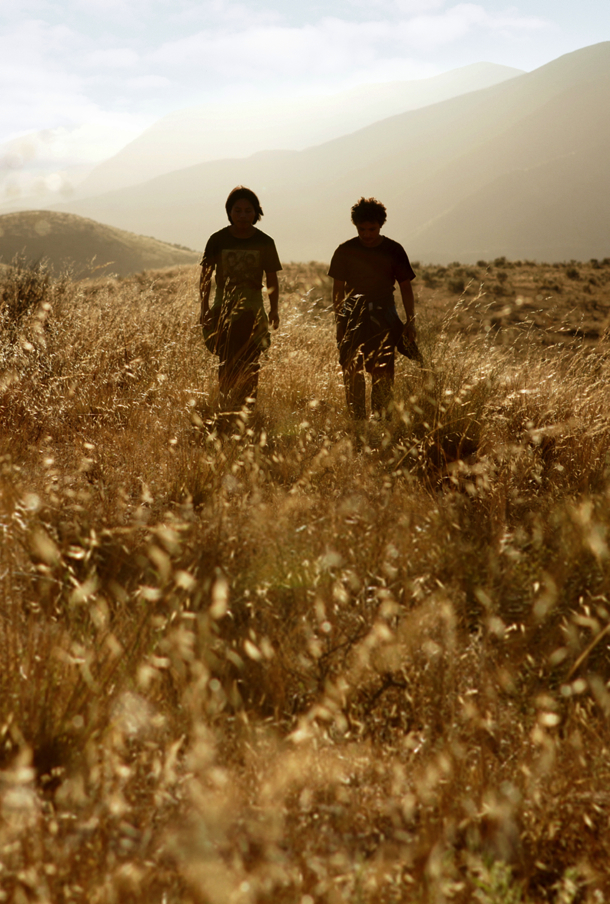
Dir.: Diego Quemada-Diez
Cast: Brandon Lopez, Rodolfo Dominguez, Karen Martinez
Guatemala, Spain, Mexico 2013, 102 min.
Diego Quemada-Diez has made an astonishing debut film: a poetic road movie, a wonderful character study of changing group relationships and an always surprising narrative, shot in wonderful colours, showing beauty and deprivation at the same time.
Young teenagers Juan, Samuel and Sara (masquerading as a boy) want to leave the slums of Guatemala for the bright lights of Los Angeles: to do so, they have to travel 2200 miles, mainly on railways but often on foot. Having crossed the border to Mexico, the trio soon encounters organised gangs of thugs, who specialise in robbing the would-be emigrants of their meagre possessions. They are deported back to Guatemala, where Samuel decides to stay put. Chauk, an Indian, who has recently joined the little group, makes up the new trio. He is liked by Sara, but despised by Juan, who looks down on him, because he can’t speak Spanish. Together they set out again, but soon they are rounded up by another gang in Mexico, who kidnap Sara, after having discovered her true gender. We are mercifully spared her fate. Chauk nurses Juan back to health after both boys are injured, trying to fight off Sara’s assailants. Later Juan sacrifices his US Dollars to free Chauk and miraculously they reach the border fence separating Mexico from the USA, where they have to carry drugs for their guides. They cross successfully, but Chauk is shot dead by a bounty hunter. Juan finally sees the snow they were all dreaming of – but watching him work in a frozen meat factory, makes the ending decisively more bitter than sweet.
Whilst the interactions of the little group are told carefully and detailed, the journey itself is breath-taking in its pace. Quemada-Diez has created a form of social realism that Loach and others can only dream of: similar to the films of Rosselini and De Sica, we not only see the grim reality, but also the dreamlike elements of the journey the trio undertakes. But this does not detract from the fact that children in these parts of the world seemed to be only there to be molested and exploited. Just a few priests seem to be aware of their plight. And the police treats them like the gangsters they encounter all the time: they steal from them. In the end, when utopia is replaced by the hell of dystopia for Juan, one is, rightly so, utterly deflated. From the wonderful, non-professional cast – again shades of Rosselini – the towering camera work and its stunning panoramic shots and hand-held chases, to the excellent structured, always twisting narrative, this is a truly great achievement. For once, poverty and degradation is shown neither sugar-coated, with false happy-endings nor grim as depressing realism, but with a wonderful mixture of dreamlike wonderment and shattering emotional turmoil. AS
SCREENING AT THE EAST END FILM FESTIVAL 2014